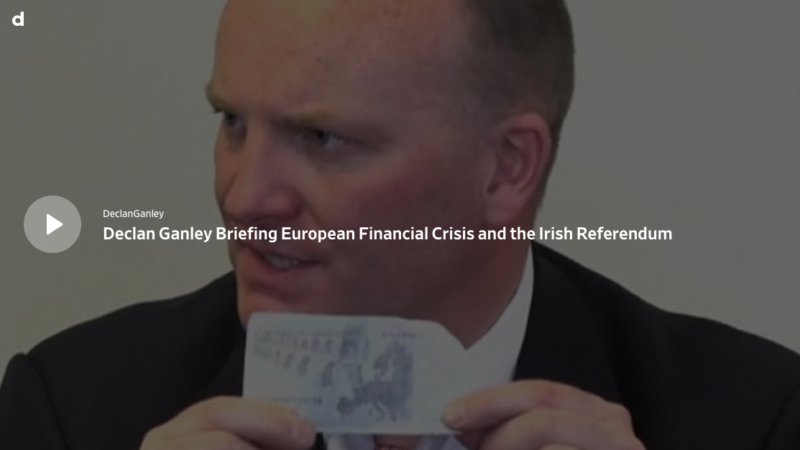Declan Ganley

I was in the audience for Declan Ganley’s presentation at RUSI in London yesterday. It was one of the most interesting and civilised debates about EU matters I have attended in London in recent times. If you’re interested to hear what Ganley said the full film is here:
For people in Irish politics Ganley is undoubtedly a pain. Here’s a rich, British born businessman, who swoons into the Irish-EU debate and helps mastermind a no to the Treaty of Lisbon. Ganley’s motives and background are subject to some question – see more on the Wikipedia page about him.
But I’m not Irish and I am not in the referendum campaign about the Fiscal Compact Treaty, so I can take Ganley’s world at face value, and there is a lot of value in Ganley’s words. The gist is as follows: that the breakup of the Eurozone will lead to the breakup of the EU, and could lead to conflict – especially in the Balkans. The alternative is further political, federal union, and that is the way the EU must advance. In this context the Fiscal Compact and the ESM Treaty are wrong, in that they try to solve the problems of the Eurozone through technocratic solutions alone, and indeed these solutions – essentially bad banking debt being loaded onto states and taxpayers – are wrong. He is also scathing about the dire quality of leadership in mainstream politics in most EU Member States.
There are aspects of Ganley’s positions I disagree with – he’s opposed to CCCTB and tax harmonisation for example, but this is because essentially he’s in favour of free markets. He’s someone from the right side of politics and I am not. Also some of his explanations of how legislative initiative should be removed from the European Commission, and how a bicameral legislature could be organised, are not adequately developed.
But, in essence, debate about the future of the EU needs people like Declan Ganley. He advocates radical and uncomfortable reforms of the EU as the only way out of the Eurozone debt crisis. He is neither a pro-European nor a Eurosceptic in the classic sense. He poses complicated questions that urgently need answers, and he’s starting to propose some answers of his own.
Put your prejudices about Ganley to one side, and listen to his words. You might be pleasantly surprised.